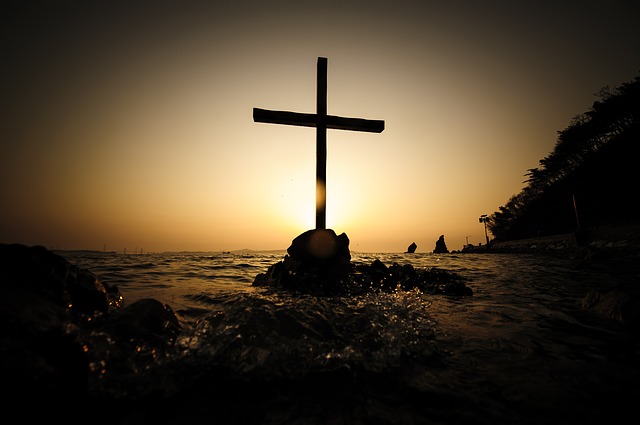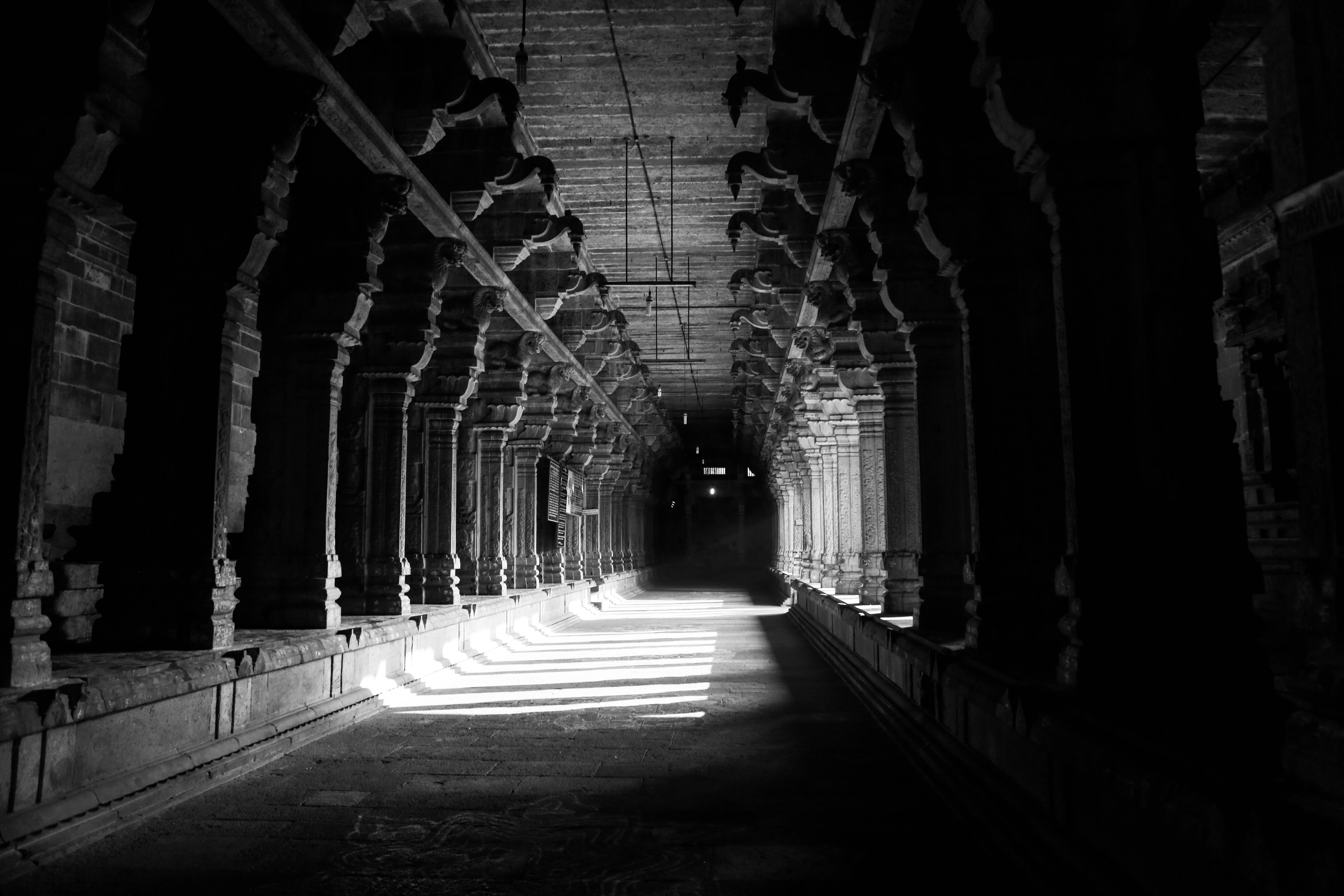 36 Then Gideon said to God, “If you will save Israel by my hand, as you have said, 37 behold, I am laying a fleece of wool on the threshing floor. If there is dew on the fleece alone, and it is dry on all the ground, then I shall know that you will save Israel by my hand, as you have said.”38 And it was so. When he rose early next morning and squeezed the fleece, he wrung enough dew from the fleece to fill a bowl with water.39 Then Gideon said to God, “Let not your anger burn against me; let me speak just once more. Please let me test just once more with the fleece. Please let it be dry on the fleece only, and on all the ground let there be dew.” 40 And God did so that night; and it was dry on the fleece only, and on all the ground there was dew. – Judges 6:36-40
36 Then Gideon said to God, “If you will save Israel by my hand, as you have said, 37 behold, I am laying a fleece of wool on the threshing floor. If there is dew on the fleece alone, and it is dry on all the ground, then I shall know that you will save Israel by my hand, as you have said.”38 And it was so. When he rose early next morning and squeezed the fleece, he wrung enough dew from the fleece to fill a bowl with water.39 Then Gideon said to God, “Let not your anger burn against me; let me speak just once more. Please let me test just once more with the fleece. Please let it be dry on the fleece only, and on all the ground let there be dew.” 40 And God did so that night; and it was dry on the fleece only, and on all the ground there was dew. – Judges 6:36-40
Fleece or Faith?
How often have you heard a fellow Christian encourage another to discern the will of God by “laying out a fleece”? Is this good advice? I’m not so sure. In my opinion, the temptation to lay out a fleece is similar to the echo of Eden, “Did God really say?” Personally, I believe Gideon’s fleece test is not a sign of faith but lack thereof. I acquiesce that it is important to discern the will of God, but testing Him by asking for a sign is another issue.
Background
Gideon lived during the difficult time of the Judges, when restraint was rare and evil abounded. Judges chapter six begins by telling us that the people of Israel were practicing evil and the LORD gave them into the hand of Midian seven years. As a consequence of the LORD’s discipline, their crops and livestock were ravaged by their enemies. The text proceeds to tell us that as a result, the people were brought low (v. 6), which is a good place for sinners to be. Finally, the people cried out to God for help.
God responded to the plea of the Israelites by sending them a prophet who reminded them of God’s faithfulness and their disobedience. Despite His acts of mercy revealed in their deliverance from Egypt, the people responded by ignoring God’s voice (v. 10). When the people cried out to God for deliverance from the Midianites, I’m not sure they expected to be answered by the rebuke of a prophet of God, but when suffering the consequences of our sins, what is more helpful than a call to repentance?
But the prophet’s rebuke was just the first step. The prophet was succeeded by an angel of God who came to Gideon to raise him up to deliver the Israelites from the Midianites. Gideon responds by questioning the angel, revealing a weakness in his faith that could not reconcile God’s promises and Israel’s current position. If God is with us why are these bad things happening? What happened to all of the miracles He showed our parents? Instead of His presence and His power, God has forsaken us and given us into the hand of Midian.
God had heard enough. After hearing Gideon’s complaints God turns to him and commands him to save Israel from the hand of Midian. Once again the character of Gideon is revealed. How can I deliver these people? My clan is the weakest and I am the least in my father’s house. That’s the point, Gideon. This is about God, not you. God chooses the weak to carry out His plans. He is not interested in sharing His glory. But God does comfort Gideon, “But I will be with you, and you shall strike the Midianites as one man” (v.18).
Sadly, God’s promised presence wasn’t enough for Gideon. Gideon’s faith needed a corroborating sign. Accordingly, Gideon prepares a young goat and unleavened cakes and presents them to the angel of God. Then the angel asked Gideon to take the meat and cakes and place them on a rock and pour broth over them. Once Gideon had done so, the angel reached out the tip of his staff and touched the meat and the unleavened cakes. Immediately, fire sprang up from the rock and consumed the meat and cakes, and the angel vanished.
After this sign, God told Gideon to pull down his father’s altar to Baal and cut down the Asherah beside it and replace them with an altar to God. When our jealous God calls us to repentance, the idols in our midst move be removed. God is not interested in sharing our hearts or His glory.
However, afraid of his family and the townspeople, Gideon performed these tasks at night Even Gideon’s eventual “obedience” showed a lack of faith. Apparently, his fear of God was impeded by his fear of man.
Despite Gideon’s weaknesses, however, God was not giving up on him. God called him a man of valor and was going to make him one.
The destruction of the idols incited the enemies of Israel. It was time for a showdown. The enemies who had tormented the Israelites by ravaging their crops and livestock were now uniting for battle. Their gods had been insulted and Gideon was to blame.
After crossing the Jordan, Israel’s enemies camped in the valley of Jezreel. “Clothed” by the Spirit of the LORD, Gideon sounded the trumpet to gather his army. With the two armies gathered there was now just one remaining problem. Was the salvation of Israel by the hand of Gideon really the will of God? In a crisis of faith, Gideon once again asked God for a sign by laying out a fleece. Not once but twice.
It is easy to look at Gideon’s fleece test and assume it is a pattern for us to follow. But is it? I give you this background history not to bore you but to give you the context which is always of vital importance. My objective is not to be critical of Gideon, but to critically look at the text.
Signs or Sacrifice?
I have heard it said that because God honored Gideon’s requests instead of rebuking him that his action was honorable. But isn’t it perhaps more likely that in honoring his request, the character of God should be exalted rather than the faith of Gideon? How often is God long-suffering with us despite our frailties? Perhaps instead of desiring to imitate Gideon’s fleece test, we should be encouraged to exalt the love and patience of his God.
Israel sinned against God and suffered for it. When they were brought low they cried out to God. God responded by sending them a prophet to prepare their hearts. After the prophet, he sent an angel to prepare their “deliverer”. Not content with the Word of God, signs were asked for. Again and again. Ultimately, how many signs does it take to convince us? Gideon knew he was treading dangerous waters, “Let not your anger burn against me; let me speak just once more. Please let me test just once more with the fleece” (v. 39).
When Jesus, the incarnate Word was asked for a sign, His response was strong, “An evil and adulterous generation seeks for a sign, but no sign will be given to it except the sign of Jonah” (Matt. 16:4). When Jesus told the parable of the rich man and Lazarus, He concluded with this haunting statement, “If they do not hear Moses and the Prophets, neither will they be convinced if someone should rise from the dead” (Luke 16:31). Apparently, a weak faith doesn’t take God at His Word, but needs signs as well. But I believe God wants us to respond to His Word by exercising faith not laying out a fleece.
In fairness to Gideon, we have two great advantages he didn’t; completed Scriptures and the indwelling of the Holy Spirit. And for good measure, a clear command.
“I appeal to you therefore, brothers, by the mercies of God, to present your bodies as a living sacrifice, holy and acceptable to God, which is your spiritual worship. 2 Do not be conformed to this world, but be transformed by the renewal of your mind, that by testing you may discern what is the will of God, what is good and acceptable and perfect.” – Romans 12:1-2
Instead of laying out a fleece we need to sacrifice our bodies. We don’t need a saturated fleece, we need to saturate our hearts and minds with the Word of God. When we “know” it, we are to “test” it by obeying it. If we are living in obedience to God’s Word, we will be living in His will; the realm of what is good, acceptable and perfect.
Gideon’s faith would eventually be commended in Hebrews chapter eleven. While his specific act of faith is not mentioned, we are told that through faith some, “were made strong out of weakness” (v. 34).
Pretty amazing what a patient and loving God can do with someone who is humbly willing to obey His Word. Do you believe it?
“Blessed rather are those who hear the word of God and keep it!” – Luke 11:28


 3 You shall march around the city, all the men of war going around the city once. Thus shall you do for six days.
3 You shall march around the city, all the men of war going around the city once. Thus shall you do for six days.

